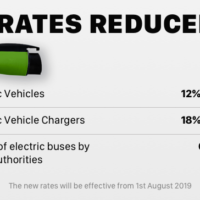Electric Vehicles VS Hybrids
Understanding Electric Vehicles: Electric vehicles are powered purely by electric motors and rely on rechargeable batteries for energy. EVs emit no tailpipe emissions because there is no internal combustion engine or need for petrol. They are quieter, more energy-efficient, and require less maintenance than traditional vehicles. Charging an electric vehicle can be done at home, at work, or at public charging stations, making it easy for drivers who have access to charging infrastructure.
The Advantages of Hybrids: On the other hand, hybrid vehicles combine a gasoline engine with an electric motor and battery system. Because hybrids can convert between an electric motor and a petrol engine based on driving conditions, they can achieve higher fuel efficiency than standard cars. Regenerative braking, a hybrid function, collects energy that would otherwise be lost during braking and utilizes it to replenish the battery.

Comparing Range and Performance: When deciding between an electric vehicle and a hybrid, one of the most important aspects to consider is range. While battery technology and range have improved significantly in recent years, electric vehicles may still fall short of the distance traveled by hybrids on a single tank of petrol. However, the range provided by electric vehicles is more than adequate for most daily trips and errands. Electric vehicles typically have faster acceleration due to the rapid torque produced by electric motors. While hybrids are often more fuel-efficient than regular cars, they may not give the same level of performance as all-electric vehicles.
Cost and Incentives: Electric vehicles have a greater upfront cost than hybrids, owing to the high cost of battery packs. However, the price difference may be mitigated by lower operational costs, such as decreased fuel and maintenance expenditures. Furthermore, numerous government incentives and tax credits might assist in making electric vehicles more affordable. Hybrids have lower purchasing prices than electric vehicles because they are more established in the market. While they may still be eligible for some incentives, they may not be eligible for as many as all-electric vehicles.
Finally, the decision between an electric vehicle and a hybrid comes down to your specific driving patterns, money, and preferences. An electric vehicle may be the best option for you if you want the cleanest alternative with zero emissions and lower operating expenses and don’t mind a potentially higher upfront price. If I suggest you to choose from Electric Vehicles VS Hybridsm, so I will suggest Electric vehicles because it has many advantages.
A hybrid, on the other hand, could be the ideal solution if you’re concerned about range and want a car with a lower initial price while still reaping some environmental benefits. Consider aspects such as charging infrastructure in your location, any incentives, and your regular driving patterns while researching various models. You’ll be more equipped to make an informed decision and find the ideal eco-friendly vehicle for your needs if you do so.
We hope this blog “Electric Vehicles VS Hybrids” has been helpful to you for your better understanding.
/Also read/







3 Comments
[…] Electric Vehicles VS Hybrids: Which Is Better for You? […]
[…] Electric Vehicles VS Hybrids: Which Is Better for You? […]
[…] Electric Vehicles VS Hybrids: Which Is Better for You? […]